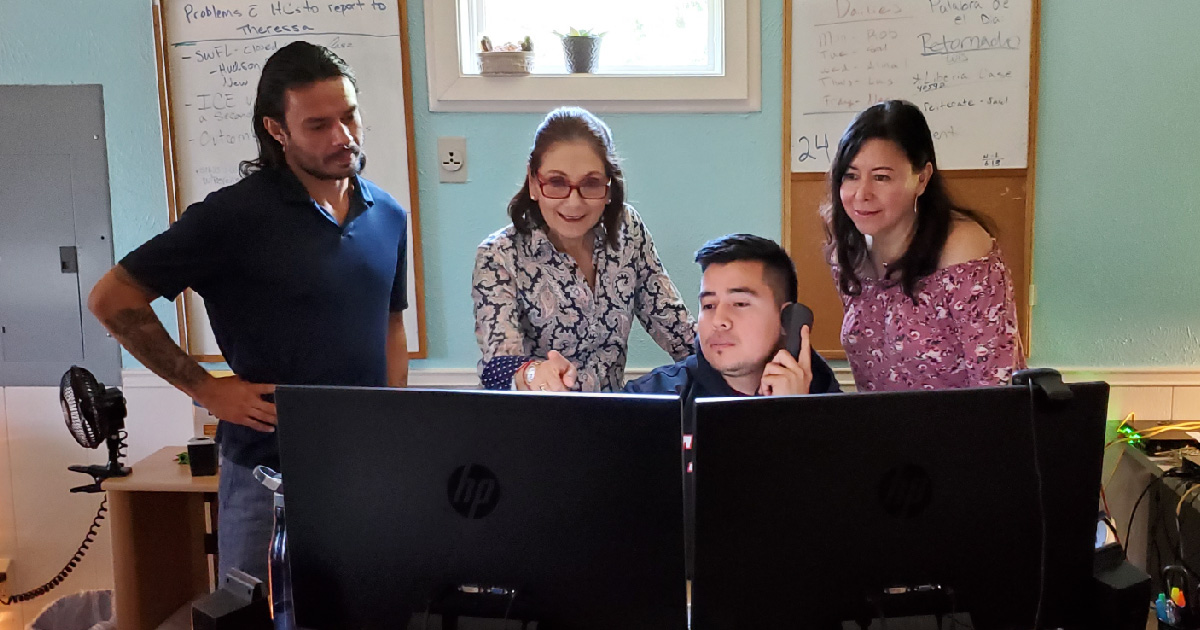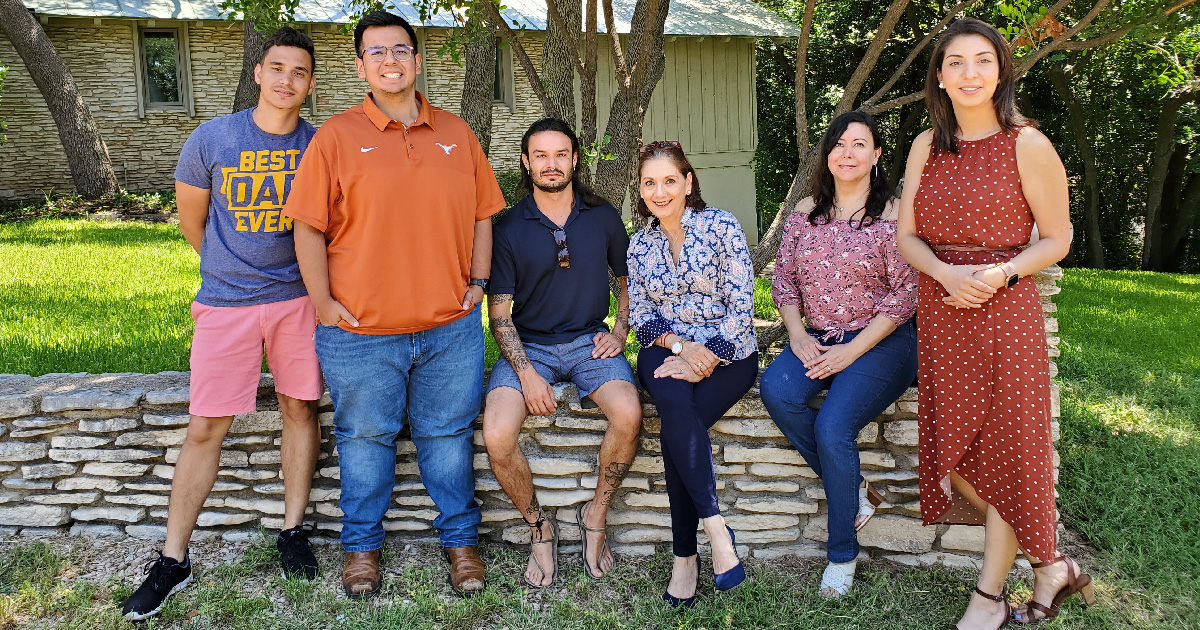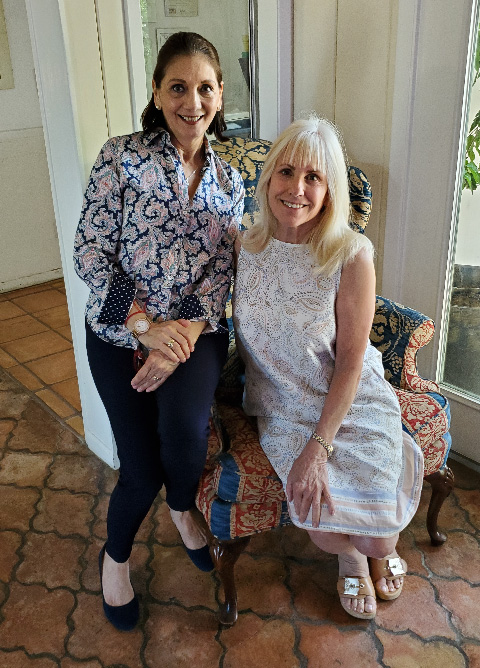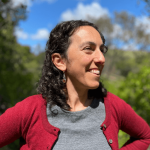MCN welcomes Nelly Salgado de Snyder, MA, DSW

[Nelly Salgado de Snyder works with MCN's Robert Corona, Nestor Reyes, and Roxana Pineda.]
[Editor’s note: Migrant Clinicians Network welcomes Nelly Salgado de Snyder, MA, DSW. This year, Salgado de Snyder has joined forces with Migrant Clinicians Network for several collaborations and projects as she spends a sabbatical year with us in Austin, Texas.]
In the early 1980s, Nelly Salgado de Snyder, MA, DSW, noticed something troubling about the research on migrating women from Mexico: it didn’t exist. “[Women] were moving, but you couldn’t find a single research article on Mexican migrant working women. I started looking at some of the cultural factors, such as the implications of coming to the US and leaving their families behind. Because, to that day, most of the literature was on men, as the key actors of the migration process.” Salgado de Snyder, then a clinical psychologist studying for her doctorate in social welfare, shifted her lens toward the needs, motivations, and responses of migrant women moving from Mexico to the US to labor on farms. She published her research on the acculturative stress and depression she saw. Her work revealed yet another uncharted aspect of migration. “The real force behind migration was family,” recalled Salgado de Snyder. “And it wasn’t given consideration. There were no research papers about the family left behind… No one was looking at the changing dynamics of families left behind in Mexico.” During this time, Salgado de Snyder worked as the Associate Director of the Spanish-Speaking Mental Health Research Center within the Department of Psychology at the University of California, Los Angeles. In 1990 she moved back to Mexico as a Senior Researcher in Medical Sciences at the National Institute of Psychiatry, where she continued with her research on mental health among women and family members left behind in rural Mexico.
Salgado de Snyder’s early research into both the women who migrate, and the women and their families who are left back home, provided key contributions to the understanding of the immigrant experience, and launched an academic career on global health and social justice spanning several continents, over three decades, and counting.
“Nelly was the first person who helped me understand the impact of the family left behind on the migrant while they were away from home, and the changes that occurred at the interpersonal, family, and community levels,” recalled Deliana Garcia, MCN’s Director of International Projects and Emerging Issues, and longtime colleague of Salgado de Snyder. “She has such a strong community-based research background that she has upped our game profoundly in the short time she has been here.”
Salgado de Snyder’s work has brought her to the frontlines of migrant health in Mexico, the US, and beyond. Expanding on her early interests, Salgado de Snyder published extensively on the prevalence of stress and the lack of access to mental health care among women, particularly in rural and indigenous communities, which brought her to rural communities in Mexico to study the effects of migration, where in the young and able-bodied left for the US for the work, leaving young families behind. In 2001, she expanded her interests to population health and moved to Cuernavaca as a Professor and Senior researcher in Medical Sciences at the National Institute of Public Health. There, she noticed that there was another segment left behind: the elderly.
“Many of them had worked in the US for many years and they said they wanted to return to their country and die in Mexico,” Salgado de Snyder recalled. “I got interested: how do they manage, aging in Mexico, when many of their children are in the US? They are binational families.”

[Nelly Salgado de Snyder (third from right) with MCN staff members Saul Delgado, Luis Retta, Robert Corona, Roxana Pineda, and Jessica Calderon]
“To me, learning and understanding the social determinants of health became a cornerstone. I started to think differently and looking at the world in a different way,” Salgado de Snyder recalled. The challenges to address health disparities were so large that Salgado de Snyder became determined to build capacity -- not just among researchers, but with health care providers and civil servants. She designed courses on social determinants of health that were offered through the National Institute of Public Health in Mexico, where she was a senior researcher. Since 2010, the in-person summer course on social determinants in Cuernavaca has had a waitlist. Its self-directed online courses are available in English and Spanish, with more languages to come, it has become mandatory for new personnel at PAHO, Salgado de Snyder says, and the courses will continue to expand as she works with a grant from the European Union.
While working on the multinational project, Salgado de Snyder engaged with colleagues from Africa and Europe, and many others working on issues around the impacts of social determinants of health in Latin America. “We were not aware of what was happening in other regions of the world,” Salgado de Snyder realized. “We didn’t have a global health perspective. These issues aren’t just applying to Mexico, but to almost any Latin American country,” and were unique from the global health perspectives projected on other Western Hemisphere countries by the US. In 2010, with colleagues, she founded the Latin American Alliance for Global Health (ALASAG), which uses a Latin American-specific perspective on global health, with a sharp focus on social justice, to address crucial areas of global health throughout Latin America. Through the Alianza, Salgado has published several research papers on global health and has launched a multidisciplinary collaborative training program on global health in Latin America. Its pilot online course on global health was a success, with over 1200 people registering.
Building on the success of her social determinants courses, Salgado de Snyder has coordinated a popular 160-hour summer certificate on global health with the National Institute of Public Health which brings together students from around Latin America to dive deeply into global health from the Latin American perspective.

[Nelly Salgado de Snyder with MCN CEO Karen Mountain.]
Over the last three decades, Salgado de Snyder has engaged with MCN on numerous occasions, serving on the MCN Board of Directors and engaging with MCN leaders on issues of migrant health. Her year-long sabbatical allows her to spend time with her daughter and grandson in Austin, while collaborating with MCN on several projects. Her first project was to oversee a small research project led by four of MCN’s interns on vaccination administration and perceptions among men. “They had gone through the Internal Review Board of MCN and gotten approved,” she recalled. “I read the questions and thought, ‘wait -- we’re going to start from scratch, and I’m going to teach you a very summarized course of research methods.’ I love to teach!” With the lucky interns, they reviewed procedures, data collection, and results, changing the research questions and getting re-approved by the IRB. The group asked the questions at the Austin Ventanilla de Salud, a health program housed within Mexican Consulates around the US that Salgado de Snyder had contributed to when it was created years ago. After surveying over 400 people, the data were compiled and analyzed by the interns with Salgado de Snyder’s guidance, and the results will be released later this summer. The project, completed at the end of the school year, is just one of several MCN projects in the pipeline for Salgado de Snyder. Capitalizing on the wild success of multiple summer programs, Salgado de Snyder envisions a program focused on migrant health, in collaboration with MCN, bringing her work back to where she began, in migration.
“I’m still doing a little bit of everything,” Salgado de Snyder admitted. “But I have not lost my love for my roots: immigration.”
Like what you see? Amplify our collective voice with a contribution.
Got some good news to share? Contact us on our social media pages above.
Return to the main blog page or sign up for blog updates here.
- Log in to post comments

